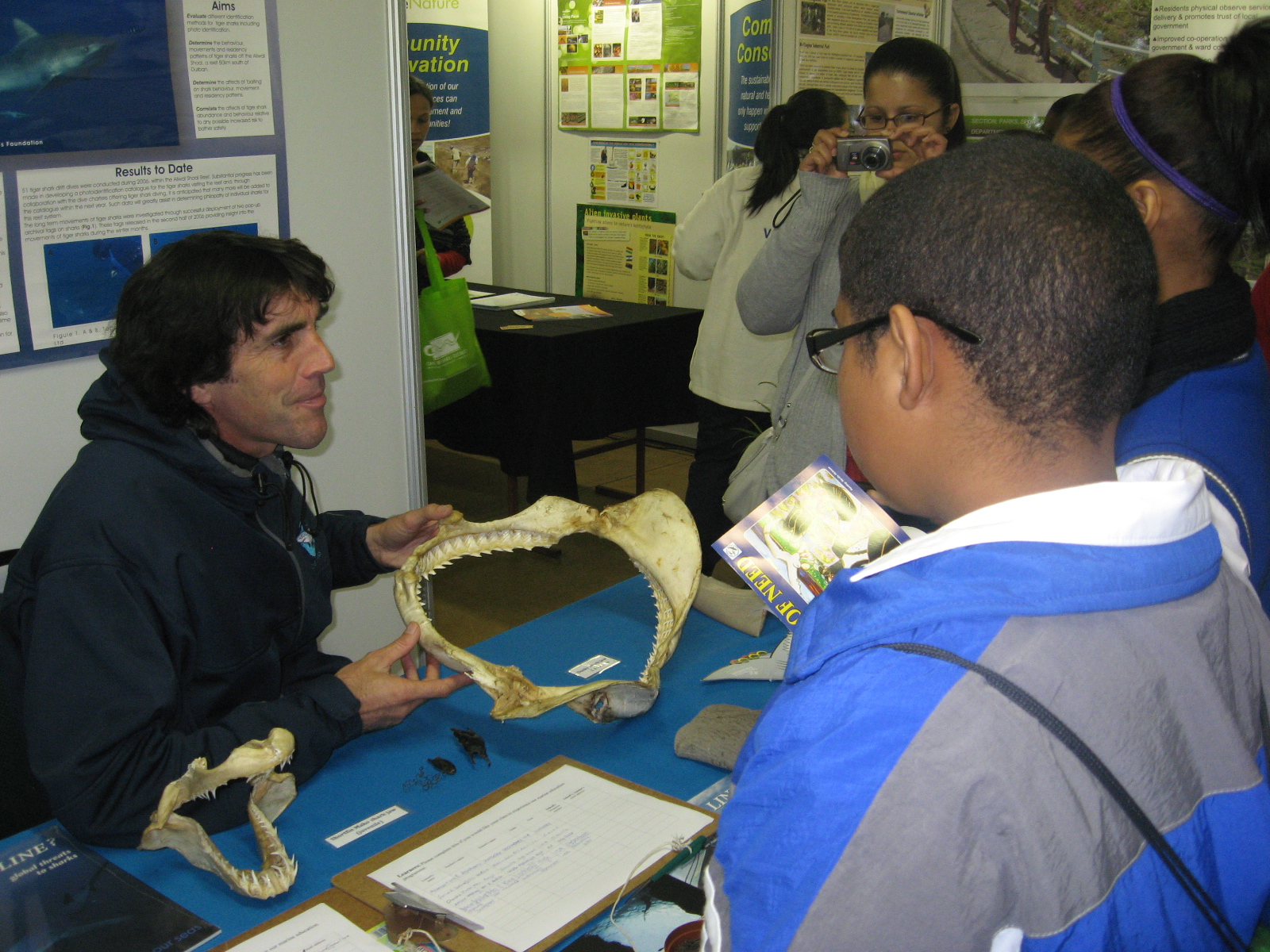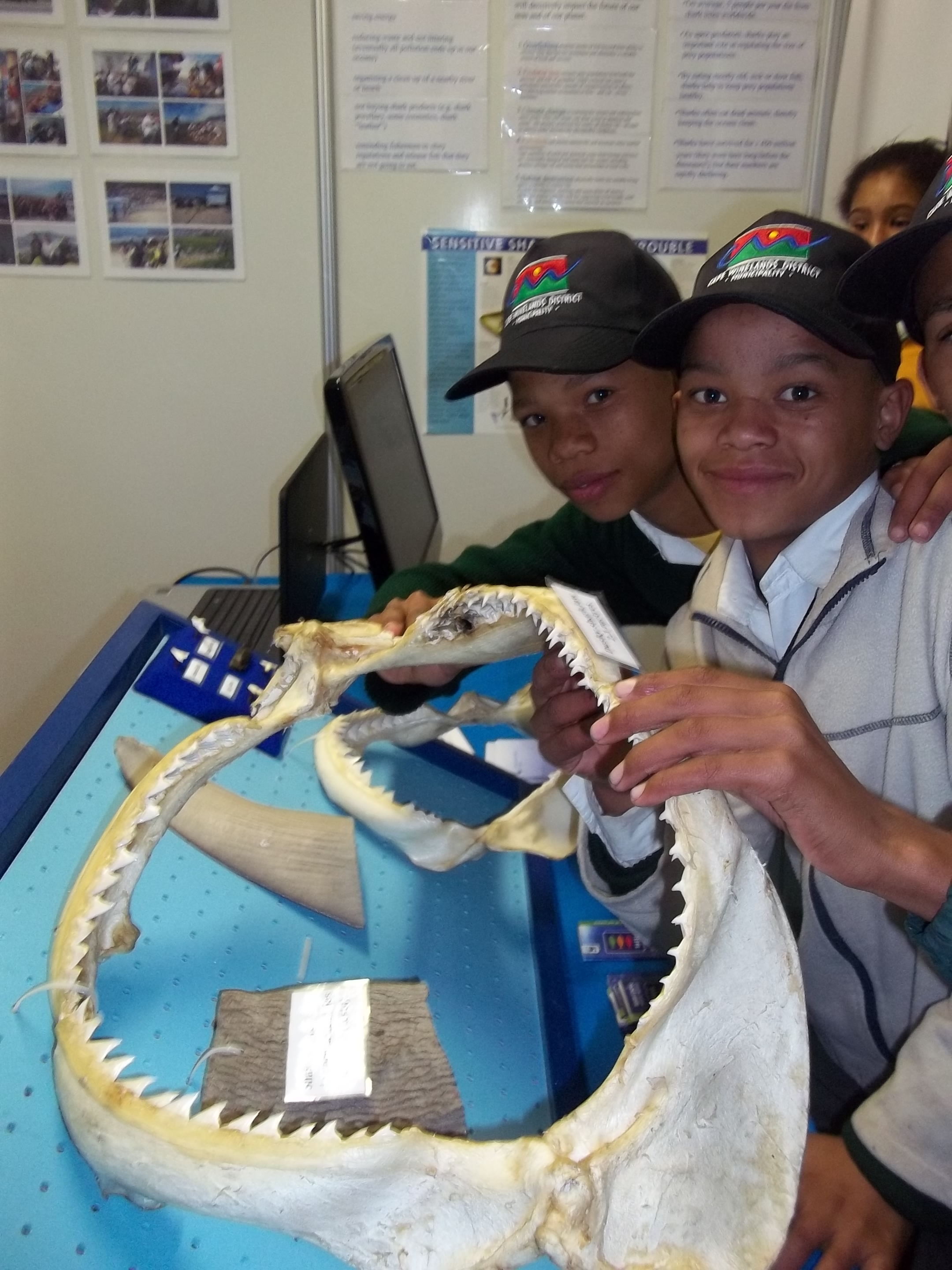Sharks – the 10 most common misconceptions
Every now and again, we at the Shark Education Centre in Kalk Bay, South Africa, attend an event where we man a stall displaying shark information and artefacts. Our aim is to educate people informally about sharks by engaging them in conversation. The events tend to relate to science, conservation or biodiversity and for the most part our audiences are schoolchildren. Our participation in the recent National Science Week gave us cause to ponder the 10 most frequently heard incorrect statements about sharks from the kids we talk to at these events.
- ‘Sharks eat people.’ Although this may occasionally happen, it is exceptionally rare. In nearly all of the very few fatalities resulting from shark bite, the shark has released the victim – clearly illustrating that we don’t taste good at all!
- ‘Thousands (if not millions) of people die from shark bites every year.’ No – the annual number of fatalities worldwide is seldom more than 10.
- ‘Megalodon is alive and well.’ Sadly (though with some relief!), this is not the case. However, the fact that many kids believe this proves that YouTube is extremely popular with young people.
- ‘Sharks are the world’s most dangerous animal.’ Not even close – sharks wouldn’t even make the top 20.
- ‘All sharks are huge animals.’ There are close to 500 species of sharks and most are significantly smaller than the average human.
- ‘The smell of blood immediately sends a shark into a feeding frenzy.’ Like all predators, sharks have quite specific prey. The smell of blood may heighten their curiosity, but they tend to go about their feeding in quite an orderly way.
- ‘Sharks are evil.’ Perhaps this misconception stems from the sinister music that often accompanies their presence in a movie. Once kids have been shown beautiful underwater footage of the animals, they usually change their minds and marvel at the shark’s beauty and grace.
- ‘Sharks are scared of dolphins, so if you see dolphins, there are no sharks around.’ If anything, it is more likely to be the other way around, as both groups of animals are more likely to be found in waters where the food chain is active.
- ‘A shark will die if it stops moving.’ This is true for some species, but many sharks are able to compensate for a lack of water flow when stationary by buccal pumping, whereby they pump water over their gills in order to oxygenate their blood.
- ‘False Bay is a breeding ground for great white sharks.’ There are no records of newly born great white pups in the bay.
It’s interesting to note that most of the above misconceptions relate to the behaviour of sharks, and particularly to human–shark interactions. The good news is that when kids pronounce their knowledge of shark biology, they tend to be far more accurate. Even better news is that most of the kids we meet from schools near the sea tend to be far better informed about sharks and are quick to correct their less well-informed peers!


